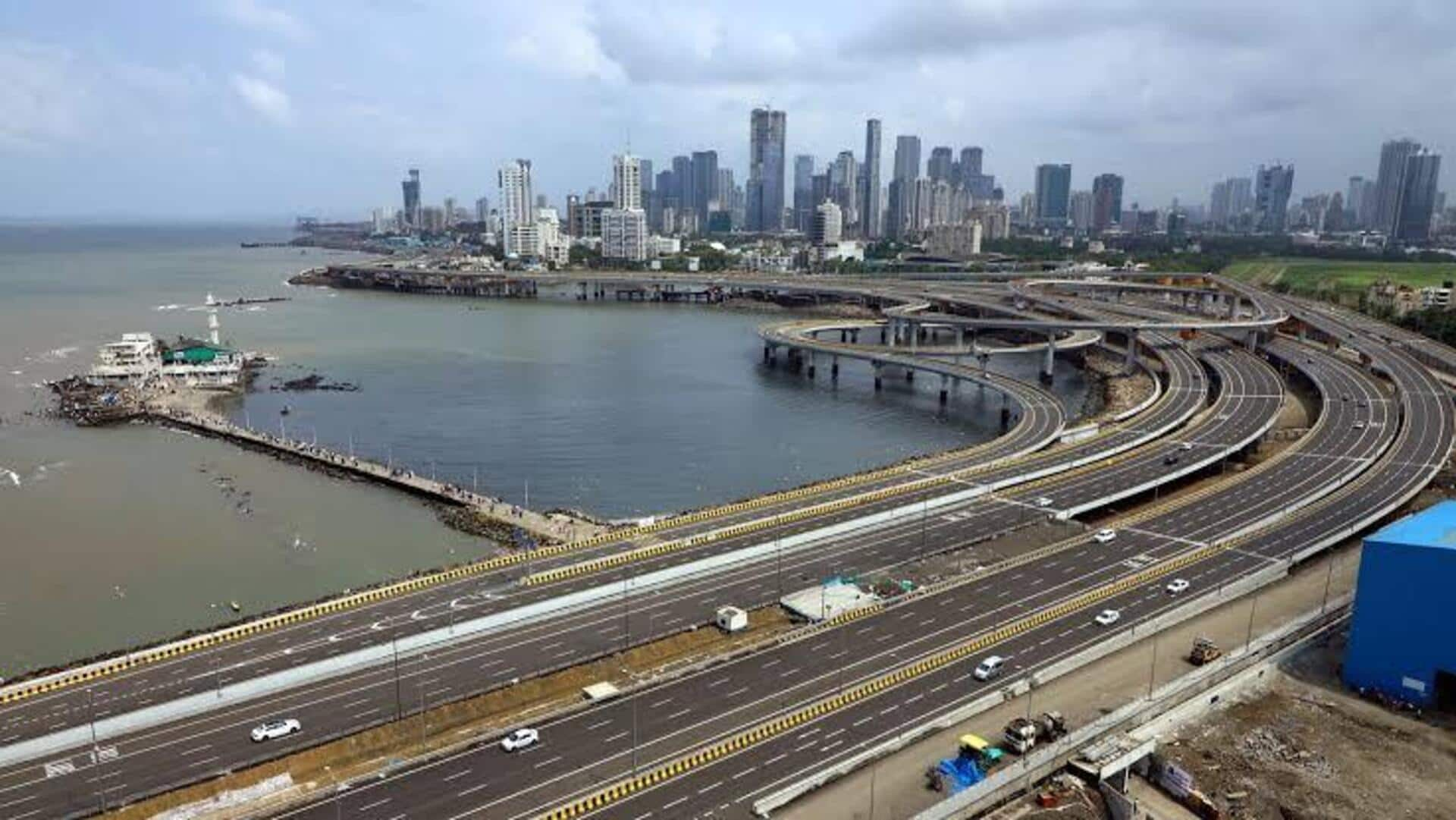
Around Mumbai in 1 hour: Everything about Ring Roads project
What's the story
The Mumbai Metropolitan Region Development Authority (MMRDA) has unveiled an ambitious infrastructure plan to transform Mumbai's transportation landscape by 2029, the Indian Express reported.
The project, estimated at ₹58,517 crore, will introduce approximately 90.18km of additional road networks.
These networks will connect the city with existing and future metro systems, bridges, and flyovers for a faster and smoother commute.
Infrastructure upgrade
Ring road projects to enhance east-west connectivity
The ring road projects are part of a larger initiative estimated at around ₹3 lakh crore, which includes new roads, slum redevelopment, and public transport improvements.
A key focus of the plan is enhancing East-West connectivity, a long-standing challenge for Mumbai residents.
The infrastructure upgrade is expected to boost Mumbai's economic activity significantly.
A recent report by Niti Aayog predicts that the city's Gross domestic product (GDP) will more than double from $140 billion to $300 billion by 2030.
Road details
First 4 ring roads to improve South Mumbai connectivity
The first ring road will start at Nariman Point and connect with the Bandra-Worli Sea Link, Sewri-Worli Connector, Eastern Freeway, and upcoming Orange Gate Tunnel.
The second ring road will also begin at Nariman Point but will pass through key junctions like Santacruz and Chembur before returning to its starting point.
The third and fourth ring roads follow similar routes but extend further north to Powai-Kanjurmarg junction and Versova-Bandra Sea Link, respectively.
Expansion plans
Remaining ring roads to enhance regional connectivity
The fifth ring road is designed for extensive travel, linking Nariman Point to the Versova-Dahisar Link Road and further north through Ghodbunder Tunnel and Fountain Hotel Connector.
The sixth outer ring road connects Mumbai with the multi-modal Alibaug-Virar Corridor for smoother access between Alibaug, Thane, and Virar.
The seventh outer ring road starts at Nariman Point and connects with Vadodara-Mumbai Expressway via Atal Setu, creating a vital commercial freight route.
Future prospects
MMRDA's goal: Cut travel time to under an hour
MMRDA Commissioner Sanjay Mukherjee stated that the goal of these projects is to reduce travel time across Mumbai to under an hour.
He told the Indian Express that these new roads, tunnels, and highways will not only ease congestion but also serve as a catalyst for economic growth.
"With MMRDA, MSRDC, and BMC working together, the future of transportation in Mumbai and Thane looks promising," Mukherjee said.